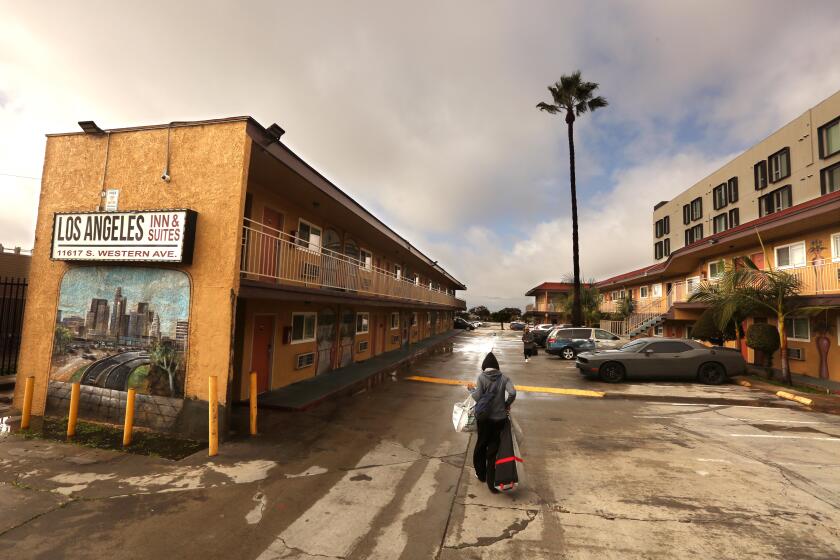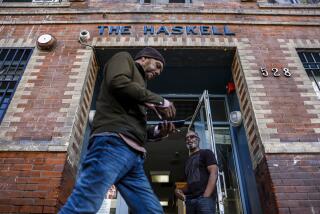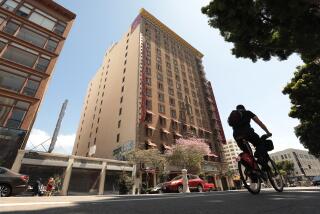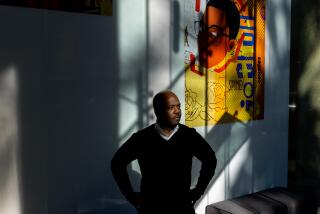L.A. to keep downtown hotel open as homeless housing for another year
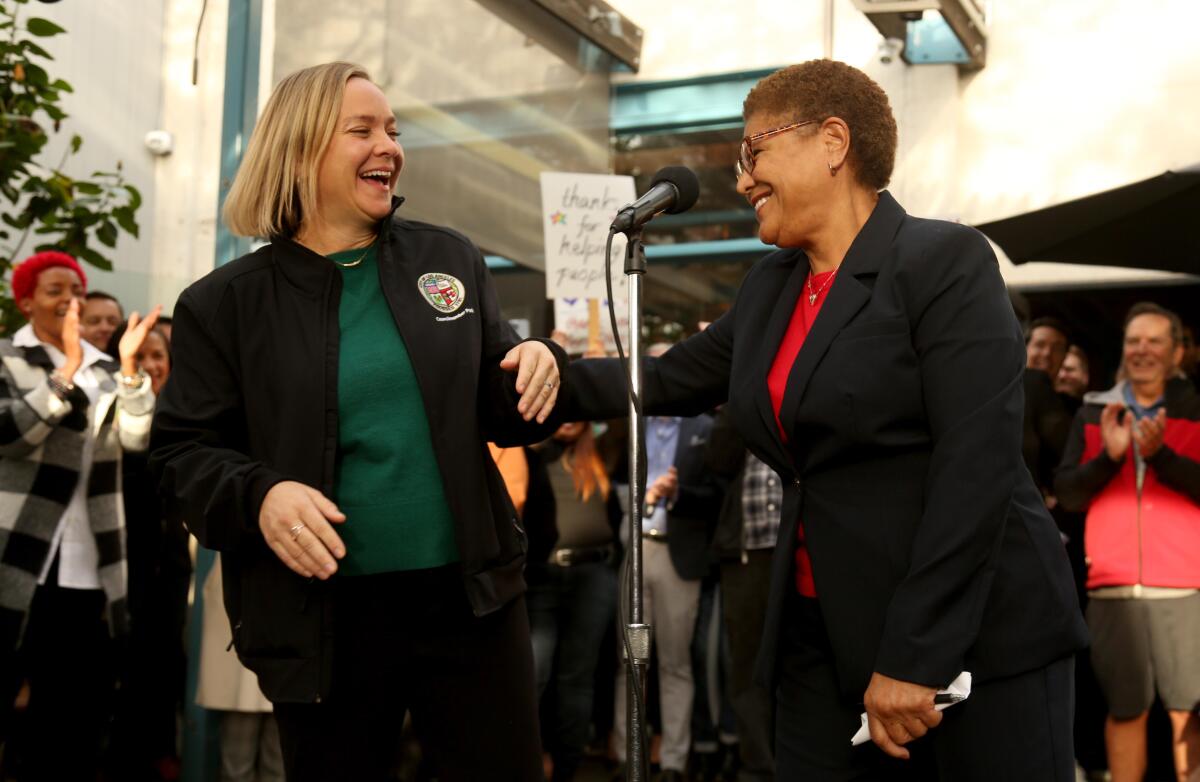
A 13-story hotel that has served as a cornerstone of Los Angeles’ fight against homelessness, a facility that had been set to cease operations in less than three weeks, will be kept open for an additional year, city officials said Friday.
The L.A. Grand Hotel, which served as temporary housing for a portion of the city’s homeless population since the outbreak of COVID-19, will continue operating until at least Jan. 31, 2024, said Mercedes Marquez, the mayor’s chief of housing and homelessness solutions.
The hotel, which had provided the city with about 480 rooms, is expected to give Bass a critical tool as she ramps up the activities of Inside Safe, her initiative to dismantle homeless encampments and bring unhoused people indoors.
In 2021, more than 100 people were moved there from a massive encampment at Echo Park Lake, according to figures provided at the time by the mayor’s office. Homeless people also have been relocated to the hotel from encampments in downtown, Little Tokyo, Koreatown and other parts of the city.
“The Grand is there. It works. And we want to have it available now,” Marquez said.
Mayor Karen Bass’ Inside Safe initiative targeted an encampment that served as home to an estimated 98 people. By Monday, 82 had moved indoors.
Bass and her team made the announcement during a reception celebrating the effort by the mayor, Councilmember Traci Park and St. Joseph Center to move scores of people from a sprawling encampment in Venice into shelter over the last two weeks.
In Venice, the mayor’s Inside Safe initiative initially focused on people living on Sunset, Hampton, 3rd and Rose avenues. But in recent days, it also provided shelter to residents of a longstanding encampment on Flower Avenue, a residential street nearly a mile away.
Bass told the crowd of residents and businesspeople that the operation would allow them to “reclaim” their local streets. She urged them to contact St. Joseph, which provided homeless outreach and other services during the Venice operation, when they see new tents in the area, to ensure those new arrivals also receive offers of housing and services.
“This is not a flash in the pan. This is not a stunt. This is serious business here,” she said.
Those who attended the reception at the Rose Venice, a restaurant in the area where the encampment operation took place, cheered the effort.
“It feels like the city’s listening, and they’re trying,” said Matthew Royce, an architect who works a couple of blocks away. “That’s all we’re asking for — some compassion and some plan to solve the problem.”
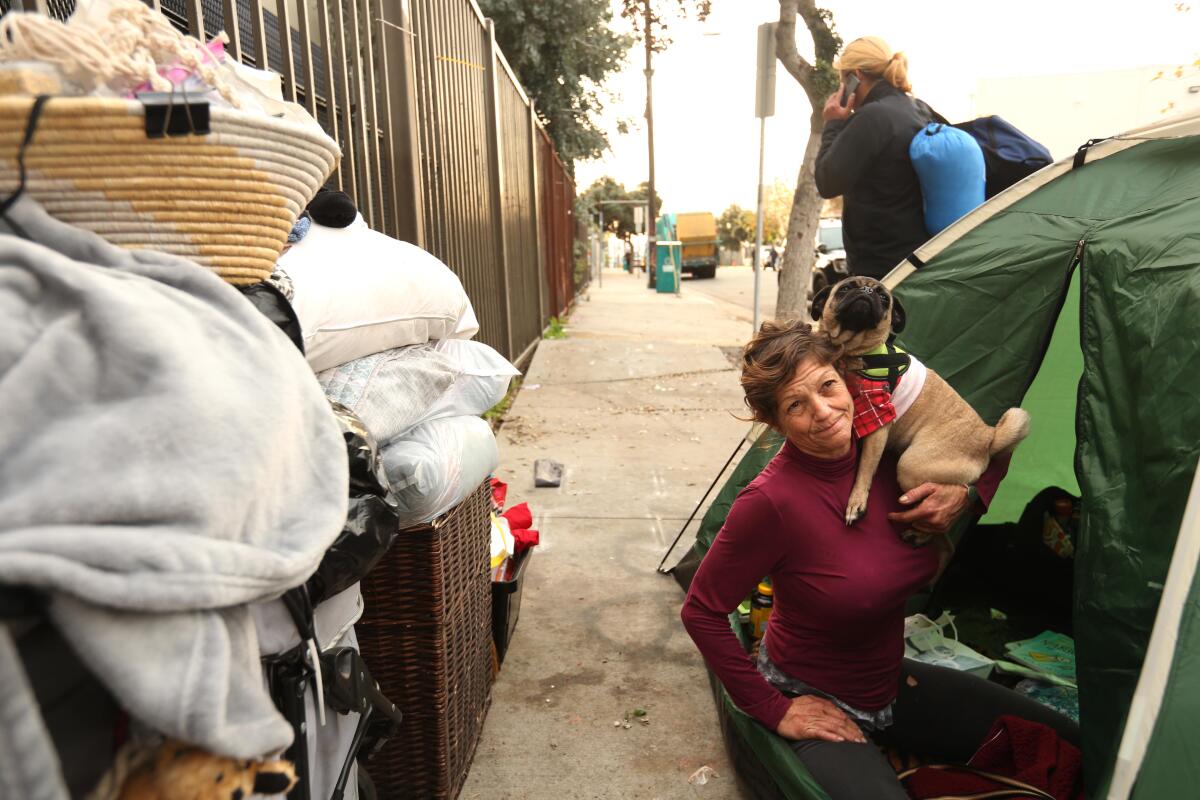
By Friday morning, the initiative had moved 96 people in Venice into motel rooms or other forms of shelter. At that point, about half a dozen tents remained on nearby sidewalks.
Inside one of them was Nicole Ginsberg, who was packing up her belongings to move into a nearby Bridge Home shelter. Ginsberg, who grew up on the Westside, wasn’t sure why she was among the last to receive an offer of temporary housing.
“If you get picked for a soccer team, I’m always the one where they’re like, ‘Well, we’ll take her at the end,’ ” she said, laughing.
Bass was accompanied at Friday’s reception by Susan Rice, former U.S. ambassador to the United Nations, who is now director of the Domestic Policy Council for the Biden White House. Bass and Rice spent the day visiting skid row and other parts of the city with significant homeless populations, talking to outreach workers and unhoused residents.
The mayor launched the Inside Safe initiative last month, moving 31 people off the streets in Hollywood. Since then, she has begun talks with Council President Paul Krekorian about potential locations in the San Fernando Valley.
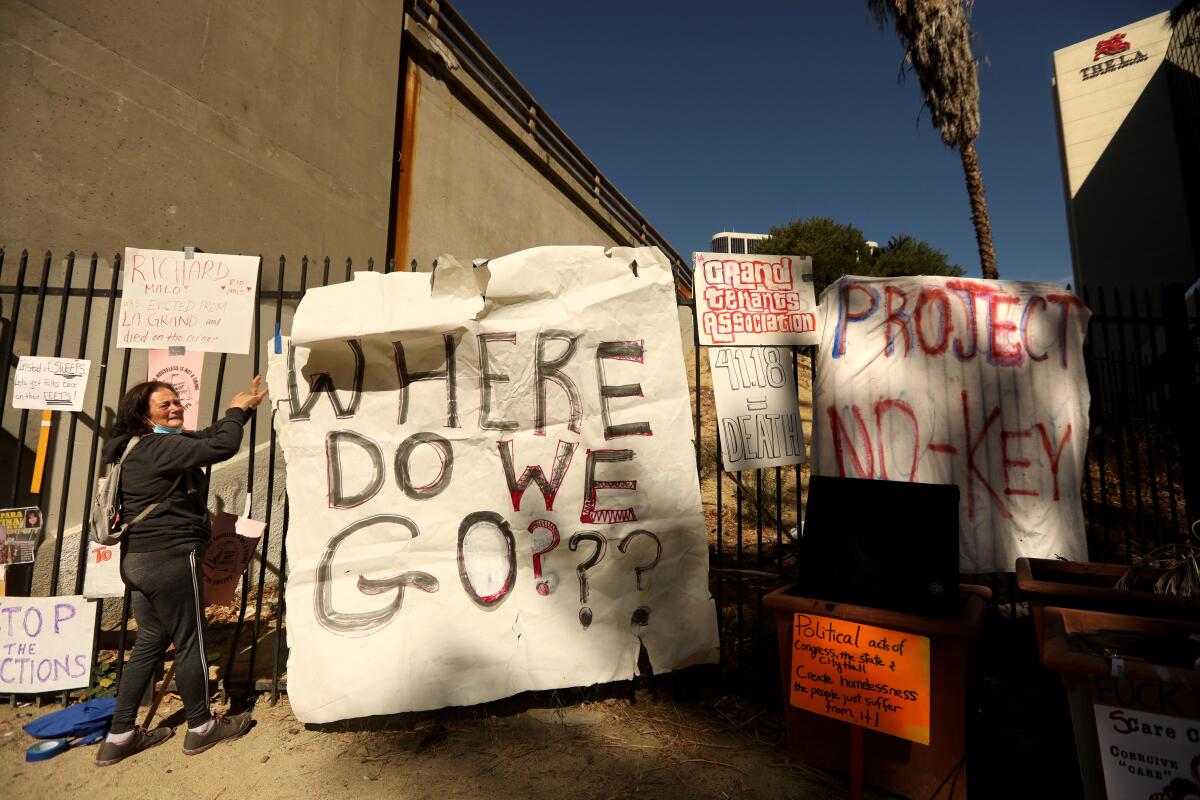
Krekorian introduced a motion on Tuesday to move $50 million into the Inside Safe program, tapping unspent COVID relief money and other funds.
The L.A. Grand is one of several hotels that participated in Project Roomkey, a program launched during the pandemic as a way to shelter the city’s most vulnerable homeless residents. The federal government originally offered to cover 100% of the costs of Project Roomkey, but reimbursement has been slow so far.
As of late November, Los Angeles officials had submitted requests for nearly $193 million in federal reimbursements for Project Roomkey, receiving $13.5 million, according to figures provided by the city.
Last year, homelessness activists and Project Roomkey participants demanded that the city acquire the L.A. Grand. Instead, city officials began decommissioning the hotel, partly out of concern that federal funds would eventually dry up.
A controversial measure that would require hotels in Los Angeles to provide vacant rooms to homeless people will go before voters in 2024.
Last week, 116 of the rooms at the L.A. Grand were occupied by formerly unhoused people.
When it was at full capacity, the hotel and associated expenses — food, medical care, security and other services — cost the city about $3.7 million per month. City officials have been working to negotiate a less expensive arrangement for the coming year.
Marquez, Bass’ homelessness advisor, said her office is in the process of identifying funding for continued operation of the hotel. The facility will keep providing meals and social services, she said, while beefing up programs aimed at moving people into permanent housing.
“We already have a program there. We already have a relationship. We are trying to fast-track so that we can get people housed right away,” she said.
More to Read
Start your day right
Sign up for Essential California for news, features and recommendations from the L.A. Times and beyond in your inbox six days a week.
You may occasionally receive promotional content from the Los Angeles Times.
